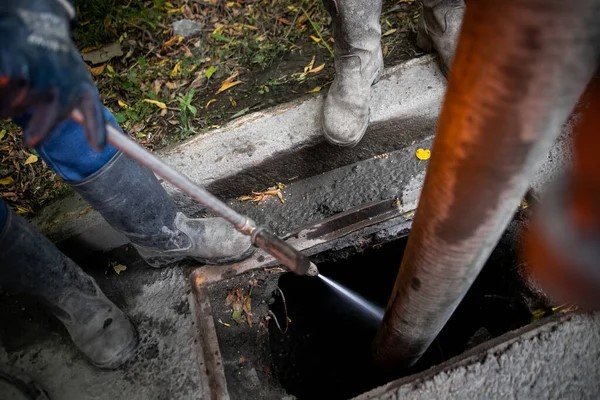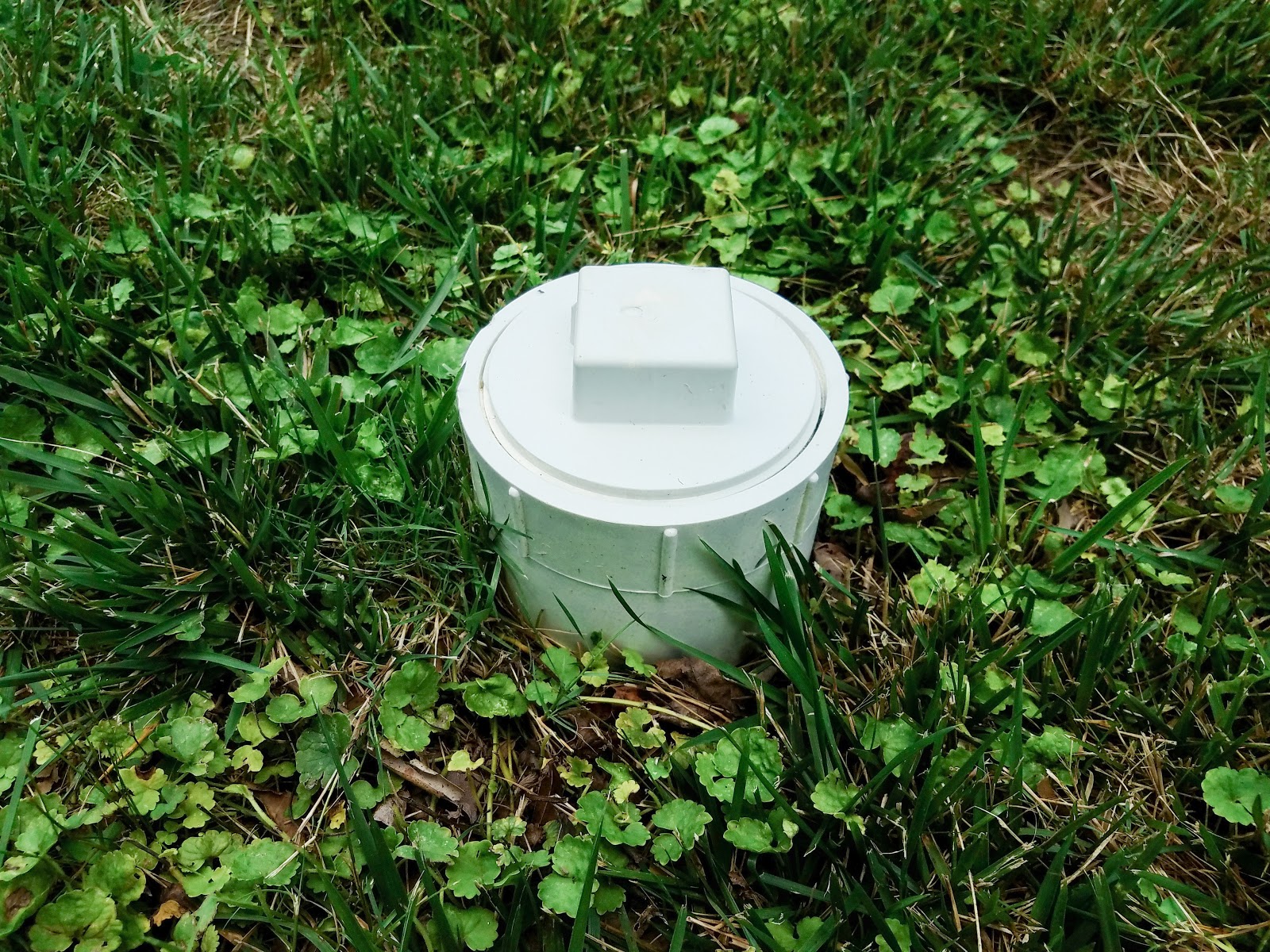Drain Clean Out Servicesin Utica MI
Professional Drain Clean Outs for Clear and Flowing Drains
We Are Locally Owned & Operated For Over 37 Years
Contact Us Today!
We Serve Businesses In And Around The Following Cities:
About Drain Clean Out Services
The Essence of Drain Clean Outs for Commercial Properties in Utica
In the dynamic and competitive city like Utica, commercial property owners strive to facilities in working order. One indispensable aspect of property maintenance is ensuring the proper functioning of drainage systems. A vital part of this is regular drain clean outs. This procedure safeguards plumbing from various untoward events such as clogs, leaks, or worse – collapsed pipes . By understanding this, business owners in the city can ensure their operations are running smoothly without unexpected expensive repair bills.
Understanding the Process of Drain Clean Outs
Drain clean outs are designed to provide access to a building’s drainage system for maintenance, inspection, and problem-solving purposes. Utilizing professional services like those at D&J Contracting ensures timely and efficient drain clean outs. This often involves a careful inspection of key areas where clogs are most likely to form. This includes basement perimeter drains, outdoor drainage systems, and oversized rainwater drainage ditches, ensuring all drains function as they should. Furthermore, a critical part of the process often includes powerfully efficient hydro-jetting drain line techniques, which dislodges any build-up of grease, grime, or other obstructions to allow free flow of water.
Benefits of Regular Drain Clean Outs
The benefits of regular drain clean outs in Utica’s commercial properties are numerous. Firstly, the process aids in preventing serious drain issues that can cause extensive damage and costly repair bills, such as collapsed pipe repair. Secondly, a regularly maintained drain ensures the health and well-being of the employees and clients in a commercial property, by preventing the build-up of harmful bacteria within the drain and reducing the risk of unpleasant odours. Additionally, drain clean outs can aid in early identification of problems such as frozen discharge lines, before they escalate into more serious challenges. All these benefits underline the value of opting for professional drain clean out services like the ones offered by D&J Contracting.
Real-World Applications in Utica’s Commercial Industries
Commercial settings, with their high footfall and usage, have a propensity for drainage-related issues. Let’s consider some real-world applications. Outdoor event venues and restaurants often require trench drain installation in their backyards to manage the rainwater and prevent property damage. Timely and professional drain clean outs done by an experienced contractor like D&J Contracting can prevent such incidents and save owners thousands of dollars in damage.
In the heart of Utica’s industrial sectors, robust drainage systems manage the heavier demands of factories and production plants. Here, the installation of a rainwater manhole and frequent drain clean outs go a long way in avoiding disruptions in the production cycle caused by problematic drain issues.
In Utica’s commercial landscape, repetitive real estate problems such as water pooling in basements or backyards can be resolved smartly with exterior drainage contractors. These experienced professionals strategically install a basement perimeter drain or a trench for yard drainage that, when combined with regular drain clean outs, ensures a smooth-flowing drainage system.
Navigating Future Drain Landscape with Expertise
With awareness and professional intervention in the form of regular drain clean outs, commercial properties in Utica can prosper and provide a safe, healthy environment for occupants. The use of advanced methods as hydro jetting drain line and the prudent approach to installing systems as a trench drain backyard, organizations can pave their way to a well-functioning drainage landscape. An attention to this seemingly minor aspect of property maintenance can make a significant improvement in operational efficiency and cost savings. D&J Contracting, with its array of drainage services, is an excellent local choice for commercial property owners in Utica.
Looking ahead, integrating regular drain clean outs into your commercial property maintenance schedule isn’t just a prudent decision ─ it is a strategic business move that will pay off in the long term. If you’re imagining a future for your business free from the woes of drain-related issues, D&J Contracting is standing by to expertly address all your drain clean out requirements, today and tomorrow.
Embrace a Drainage Health Regime with D&J Contracting
In conclusion, the importance of regular drain clean outs cannot be overstated for commercial properties in Utica. It is a key aspect that contributes to the optimal functioning of the property and reduces the risk of costly structural damage. When performed by experienced professionals like D&J Contracting, regular drain clean outs set the stage for longevity and efficiency for the commercial property’s drainage system. As a commercial property owner in Utica, taking the step to prioritize this service is truly an act of wise stewardship, preserving the value of your investment now and into the future.
Drain Clean Out Services Gallery


Call Us Today to receive your Free Quote for
Drain Clean Outs in Utica
Serving: Utica, Michigan

About Utica, Michigan
The city now known as Utica was platted by Joseph Stead in 1829, who named it “Harlow”. Others referred to the community as “Hog’s Hollow” or “McDougalville”, until a few years later it was named “Utica” by settlers from New York, in honor of the city of the same name in that state. This was common of settlers in this region, and is reflected in the names of nearby cities such as Rochester, Troy, and Livonia that are also named for New York cities.
By the 1940s, Utica was the center of a region of dairy farms and truck gardens. It had a flour mill and shipped rhubarb. Dodge Park a few miles south on the Clinton River was a state park.
As the 1950s progressed, Detroit auto companies began to build factories in neighboring Sterling and Shelby Townships, and the surrounding area began a transformation to an industrial economy.
Utica boasts a small historic district centered on Cass Avenue and Auburn Road, but few of the buildings predate 1906, due to destructive fires in 1905 and 1906.
Utica is in western Macomb County, bordered to the south by the city of Sterling Heights and to the north by Shelby Charter Township. Highways M-53 and M-59 serve the city. M-53 crosses the east side of the city, leading north 13 miles (21 km) to Romeo and south 8 miles (13 km) to Warren, while M-59 runs along the southern border of the city, leading east 8 miles (13 km) to Interstate 94 and west 15 miles (24 km) to Pontiac. Downtown Detroit is 21 miles (34 km) to the south.
According to the U.S. Census Bureau, Utica has a total area of 1.78 square miles (4.61 km), of which 0.02 square miles (0.05 km) are water. The Clinton River passes through the center of the city, flowing southeast and then east to Lake St. Clair.
| Census | Pop. | Note | %± |
|---|---|---|---|
| 1880 | 493 | — | |
| 1890 | 563 | 14.2% | |
| 1900 | 562 | −0.2% | |
| 1910 | 496 | −11.7% | |
| 1920 | 588 | 18.5% | |
| 1930 | 873 | 48.5% | |
| 1940 | 1,022 | 17.1% | |
| 1950 | 1,196 | 17.0% | |
| 1960 | 1,454 | 21.6% | |
| 1970 | 3,504 | 141.0% | |
| 1980 | 5,282 | 50.7% | |
| 1990 | 5,081 | −3.8% | |
| 2000 | 4,577 | −9.9% | |
| 2010 | 4,757 | 3.9% | |
| 2020 | 5,245 | 10.3% | |
| U.S. Decennial Census | |||
As of the census of 2010, there were 4,757 people, 2,218 households, and 1,245 families living in the city. The population density was 2,781.9 inhabitants per square mile (1,074.1/km). There were 2,463 housing units at an average density of 1,440.4 per square mile (556.1/km). The racial makeup of the city was 90.4% White, 1.9% African American, 0.5% Native American, 3.5% Asian, 1.9% from other races, and 1.8% from two or more races. Hispanic or Latino of any race were 3.8% of the population.
There were 2,218 households, of which 23.6% had children under the age of 18 living with them, 37.8% were married couples living together, 14.0% had a female householder with no husband present, 4.3% had a male householder with no wife present, and 43.9% were non-families. 38.0% of all households were made up of individuals, and 15.9% had someone living alone who was 65 years of age or older. The average household size was 2.13 and the average family size was 2.80.
The median age in the city was 41.7 years. 17.9% of residents were under the age of 18; 8.8% were between the ages of 18 and 24; 27.4% were from 25 to 44; 28.3% were from 45 to 64; and 17.4% were 65 years of age or older. The gender makeup of the city was 47.4% male and 52.6% female.
As of the census of 2000, there were 4,577 people, 1,952 households, and 1,184 families living in the city. The population density was 2,578.2 inhabitants per square mile (995.4/km). There were 2,005 housing units at an average density of 1,129.4 per square mile (436.1/km). The racial makeup of the city was 93.77% White, 0.92% African American, 0.37% Native American, 2.56% Asian, 0.74% from other races, and 1.64% from two or more races. Hispanic or Latino of any race were 2.10% of the population.
There were 1,952 households, out of which 27.2% had children under the age of 18 living with them, 43.8% were married couples living together, 13.3% had a female householder with no husband present, and 39.3% were non-families. 34.2% of all households were made up of individuals, and 10.8% had someone living alone who was 65 years of age or older. The average household size was 2.29 and the average family size was 2.96.
In the city, the population dispersal was 21.0% under the age of 18, 9.6% from 18 to 24, 31.7% from 25 to 44, 23.2% from 45 to 64, and 14.5% who were 65 years of age or older. The median age was 37 years. For every 100 females, there were 92.9 males. For every 100 females age 18 and over, there were 91.8 males.
The median income for a household in the city was $38,683, and the median income for a family was $57,156. Males had a median income of $36,912 versus $26,353 for females. The per capita income for the city was $21,615. About 4.8% of families and 7.0% of the population were below the poverty line, including 6.7% of those under age 18 and 17.3% of those age 65 or over.
Utica Community Schools operates public schools, including Utica High School, Eppler Junior High School Flickinger Elementary School, and Wiley Elementary School. They serve the communities of Sterling Heights, Utica, and Shelby Township.
Call Us Today to receive your Free Quote for
Drain Clean Outs in Utica
Related Services in Utica, Michigan
We Serve Businesses In The Following Zip Codes:
48007, 48015, 48021, 48026, 48035, 48036, 48038, 48042, 48043, 48044, 48045, 48046, 48047, 48048, 48050, 48051, 48066, 48071, 48080, 48081, 48082, 48083, 48084, 48085, 48088, 48089, 48090, 48091, 48092, 48093, 48098, 48099, 48225, 48230, 48236, 48310, 48311, 48312, 48313, 48314, 48315, 48316, 48317, 48318, 48397